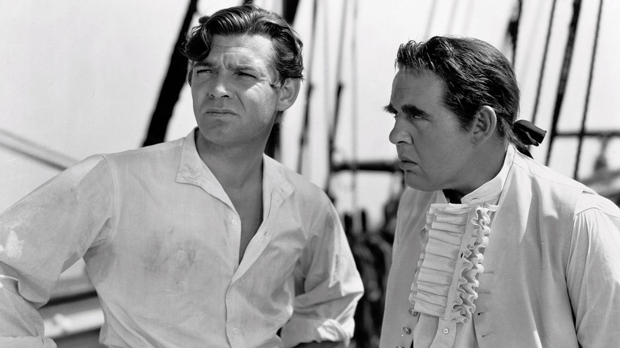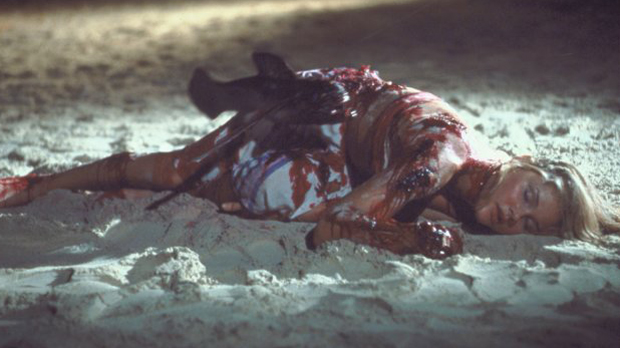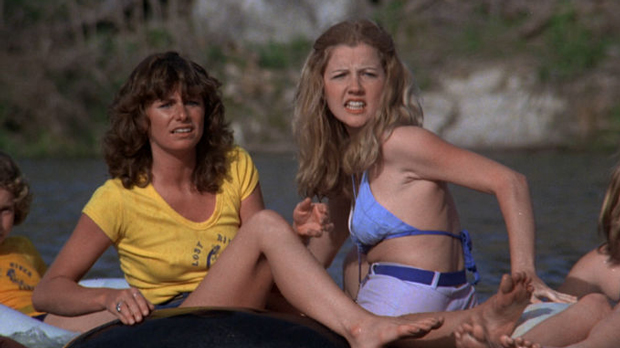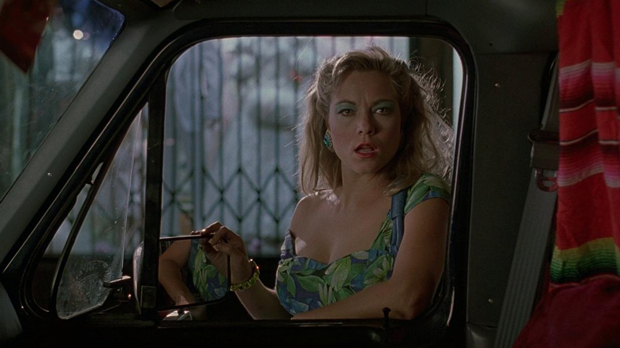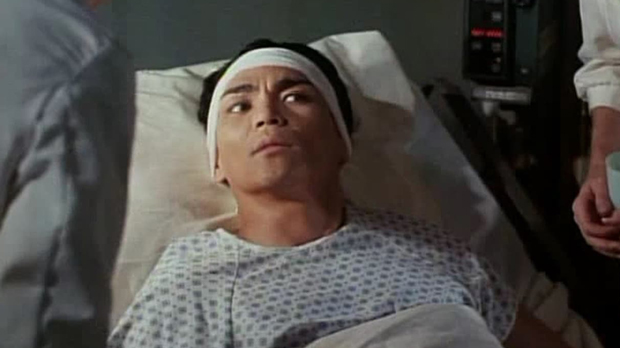 Mutiny on the Bounty (1935) MGM/Drama-Adventure RT: 132 minutes No MPAA Rating (violent content) Director: Frank Lloyd Screenplay: Talbot Jennings, Jules Furthman and Carey Wilson Music: Herbert Stothart Cinematography: Arthur Edeson Release date: November 22, 1935 (US) Cast: Charles Laughton, Clark Gable, Franchot Tone, Herbert Mundin, Eddie Quillan, Dudley Digges, Donald Crisp, Henry Stephenson, Francis Lister, Spring Byington, Movita, Mamo, Byron Russell, Percy Waram, David Torrence. Box Office: $4.5M (US)
Mutiny on the Bounty (1935) MGM/Drama-Adventure RT: 132 minutes No MPAA Rating (violent content) Director: Frank Lloyd Screenplay: Talbot Jennings, Jules Furthman and Carey Wilson Music: Herbert Stothart Cinematography: Arthur Edeson Release date: November 22, 1935 (US) Cast: Charles Laughton, Clark Gable, Franchot Tone, Herbert Mundin, Eddie Quillan, Dudley Digges, Donald Crisp, Henry Stephenson, Francis Lister, Spring Byington, Movita, Mamo, Byron Russell, Percy Waram, David Torrence. Box Office: $4.5M (US)
Rating: ****
The first cinematic version of Mutiny on the Bounty sets a pretty high standard for dramatic historical adventure films. It’s a remarkable achievement in several different areas of filmmaking; it’s the only film to win Best Picture without winning in any other category. Most critics would compare it to the two subsequent remakes, but the truth is I’ve never seen the 1962 version with Marlon Brando and Trevor Howard and I haven’t watched the 1984 version starring Mel Gibson and Anthony Hopkins in a very long time. Therefore, all I can say is that the 1935 original is an excellent movie, totally deserving of its Best Picture status.
Directed by Frank Lloyd (Cavalcade), Mutiny on the Bounty chronicles the real-life mutiny (April 28, 1789) aboard the HMS Bounty, a British cargo ship on a botanical mission to collect 1000 breadfruit trees from Tahiti. Master’s mate Fletcher Christian (Gable, It Happened One Night) leads the rebellion against the sadistic Captain Bligh (Laughton, Witness for the Prosecution) after years of abuse against his crew. In the late 18th century, seamen had no rights; they could be forced into service at a moment’s notice. Bligh sets sail on the momentous voyage to Tahiti in 1787 (December 23) and wastes no time asserting his authority and displaying his cruel nature to the crew of the Bounty.
Over the many months of the voyage, he flogs his men for the slightest infractions and cuts their already meager rations whenever he feels like it. He disciplines the entire crew in this way after some cheese goes missing. Christian believes it’s an unfair disciplinary action and speaks out against it to the captain. Refusing to tolerate any insolence from his men, he denies Christian any shore leave once they arrive in Tahiti. He manages to get off the ship anyway and falls in love with a beautiful native woman.
After several months of relative happiness, it’s time to head back to England. Many of the men don’t want to leave. Bligh becomes meaner and more unreasonable as a result. All hell finally breaks loose aboard the Bounty when he cuts the water rations so the breadfruit trees can be maintained. Christian leads the crew in a violent mutiny. They force the captain and other ship officers into a lifeboat with meager supplies and set them adrift in the open sea. The mutineers return to the tropical paradise of Tahiti and spend the next few years living in peace and happiness as many have married native women.
Meanwhile, Bligh and his officers make it home to England where he’s determined to see the mutineers caught and punished for their crimes against the Crown. It all leads to a court-martial proceeding against the mutineers. While I will not reveal the verdict, I will say that the whole situation leads to a complete overhaul in the laws concerning relations between superior officers and seamen on ships. In other words, the rights of the seaman would have to be recognized.
While it may seem like I’ve related the entire story of Mutiny on the Bounty, I assure you I haven’t revealed absolutely everything. For example, what is the post-mutiny fate of Fletcher Christian? What happens to him and his men when another English ship arrives in Tahiti?
I should tell you Mutiny on the Bounty is actually based on the 1932 novel by Charles Nordhoff and James Norman Hall rather than actual historical fact. For the sake of keeping the audience interested, it becomes more of a dramatic adventure than a dry historical account of the incident. It’s not one of those swashbuckling adventure flicks that thrilled audiences of kids on Saturday afternoons. Don’t expect to see Clark Gable swinging from the mast with a dagger in his teeth.
One of the film’s best aspects is its meticulous attention to detail. The sets and costumes bring authenticity to the film. It really looks like Lloyd took his camera back to the late 18th century and started shooting. The Tahitian locations (and the women!) are lush and gorgeous. Who wouldn’t want to stay there for the rest of his life? The freedom of living in such a paradise provides an excellent contrast with the rigid laws that govern civilized society. The mutiny scene is very well done; it’s the centerpiece of this outstanding movie.
I feel that I need to say I’m especially impressed with Mutiny on the Bounty because the filmmakers accomplished so much with the limited technology of the 1930s. The mutiny sequence is intricately choreographed and well executed proving that CGI isn’t always needed to take the audience’s breath away. I’ve been watching a lot of old movies recently and I find that some of them are positively beautiful in their utter simplicity.
I’m also quite taken with the lead performances, especially Gable who’s earned a spot on my favorite actor list. That guy could do anything from screwball comedy (It Happened One Night) to high drama (Gone with the Wind). He makes a decent action hero in Mutiny on the Bounty. He’s tough and noble; his actions are more altruistic than they are self-serving. Laughton’s non-matinee idol appearance makes him the perfect antagonist. It’s easy to see Bligh’s inherent malevolence lurking beneath his uptight facade. Franchot Tone (Advise & Consent) delivers a great performance as midshipman Roger Byam, the character whose morality is put to the test with the mutiny. He takes action that puts him on the wrong side of a court martial, but he uses the situation to address the cruel actions of Bligh and the need for change in officer-seaman relations.
Mutiny on the Bounty works on many levels. It’s consistently interesting, never getting too bogged down with weighty issues and psychological drama. Lloyd keeps things moving along at a nice clip. It’s an absolute must-see for all movie buffs.
